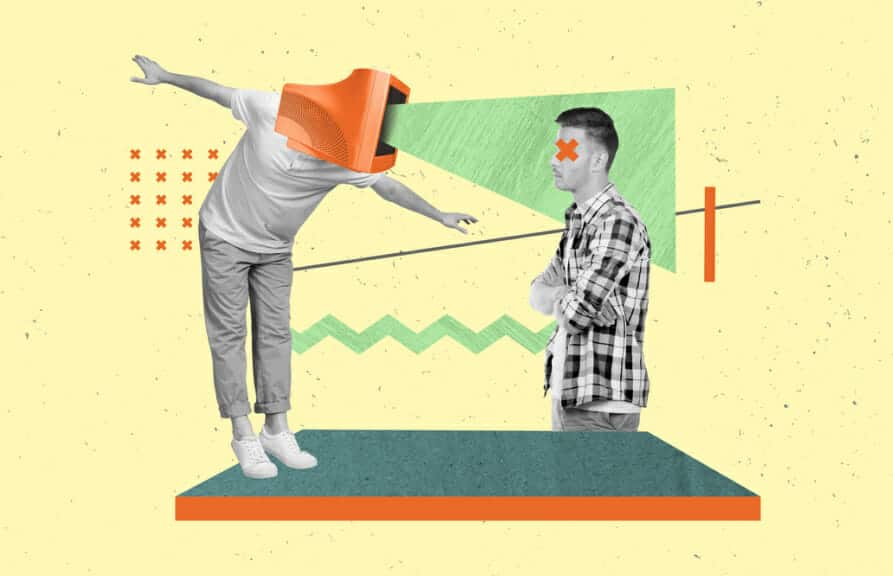When social media platforms were created, apps like Myspace, Facebook, and Instagram were intended to share your life with friends and family. Times have changed, and it has now developed into a program that reveals your private life to strangers.
With the countless changes that have come as social media develops over the years, many people now receive payment for posting content on social media and gaining followers from the content they post. Because of this, the engagement and use of social media have changed, and so have the app consumers. This begs the question; should your social media represent you?
There are many different arguments on this subject. Some believe that social media is strictly for entertainment purposes and should not be a representation of who you are.
Others believe that since social media is a significant resource used in daily life, it accurately depicts someone’s identity. For instance, the social media phenomenon called “trolling.” Trolling is when someone posts or comments online, intending to upset others. They argue it’s only to gain a reaction from the public, and it doesn’t allude to their character. However, despite what many believe, being aware that a comment is offensive and applying it adverts a sense of character.
Why Is Social Media So Important?
According to Demand Sage’s global statistics, more than half of the world uses social media. Of that, over 70% get their news from it, according to Statista. We use social media to share thoughts and ideas, and some of those thoughts regard politics. Politicians use it to engage with the public on affairs giving us access to more community exchanges. Politics, as it always has been, can reflect who you are, and what you endorse on your platform can highlight that.
As it becomes more prominent in our everyday lives, it is now the source to which many people, especially employers, refer to learn about a potential candidate. Because of this, potentially job-seeking people, especially students, are now hyper-vigilant about what they post.
Social Media Background Check
When sharing your life on a specific app, it can be hard to forget that the world can access it when using it as a source to vent. This is problematic in more ways than one, but it is imperative to remember that your social media profile can affect your professional life.

Social media background checks are used during the pre-employment screening step of the hiring process. What employers look for when conducting background checks are violent or offensive comments, sexually explicit content, or anything that could bring trouble to the company. It’s best to keep your social media clean if you are hunting for jobs and even after you receive the job.
If your morals are in the way of receiving a job, what do you do then?
As someone extremely active on Twitter, I tend to voice my opinion on many social and environmental issues. Sometimes my tweets condemn large corporations, so for someone in a similar position, let’s paint a scenario. You apply for a job, they ask for an interview, and during said interview, they ask you to delete tweets/posts from your social media that express your beliefs. If this goes against your beliefs, what do you do? Many would advise you to stand your ground, but a professional would advise you to keep your thoughts private.
Certain apps have solved this solution by creating a feature that allows you to have a secluded community on your account.
Where Close Friends And Finsta Comes in Handy

A “finsta” is a term for what the kids call a fake Instagram. It’s an account for users to post images they wouldn’t otherwise post on their main account. Teenagers use it to hide their activities from their parents, but college students use it to hide from potential employers. These accounts are usually private and secluded only to close friends. This brings us to the “close friends” feature provided on several social media platforms. This feature allows you to post things only seen by your chosen followers. These are helpful when you want to post something like a night out without it returning to haunt you.
Many people have questioned whether what you do in your free time should cause problems in your professional life. A friend was recently asked to take down a picture of her and some friends during a night out. The reasoning was that the company she worked for was family-friendly, and the images were taken in a nightclub. Even though the individuals in the picture were of drinking age, the company worried what she did in her free time would affect the company’s image.
The answer isn’t always black and white. Whether social media should represent you depends on what you decide to share. The truth is, once you publicly endorse specific affairs on a public platform, what people think of you is already predetermined.
While social media is a part of everyday life, many people decide not to include personal information that can give someone access to who they are. If you use it solely for fun or professionally, without relaying any personal information, there’s not much to constitute for. So to answer the question, social media can only represent you if you allow it to.






